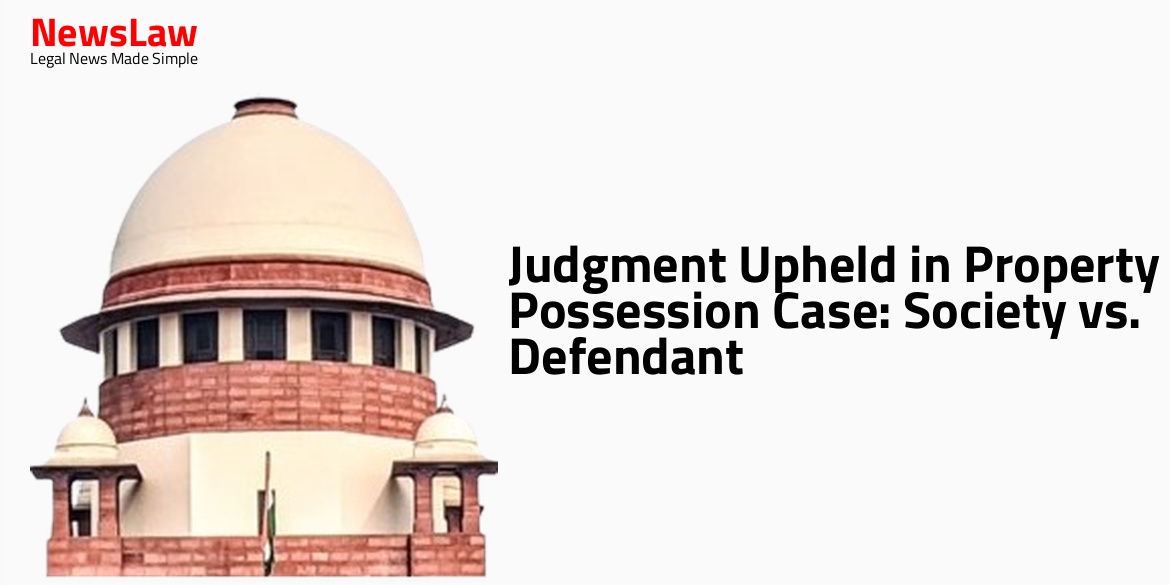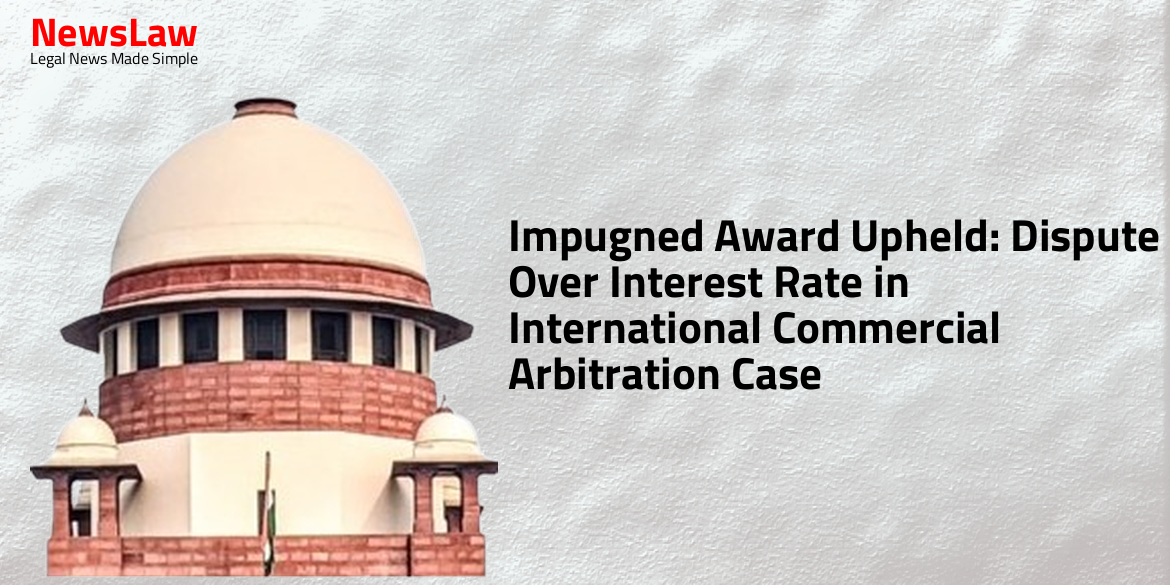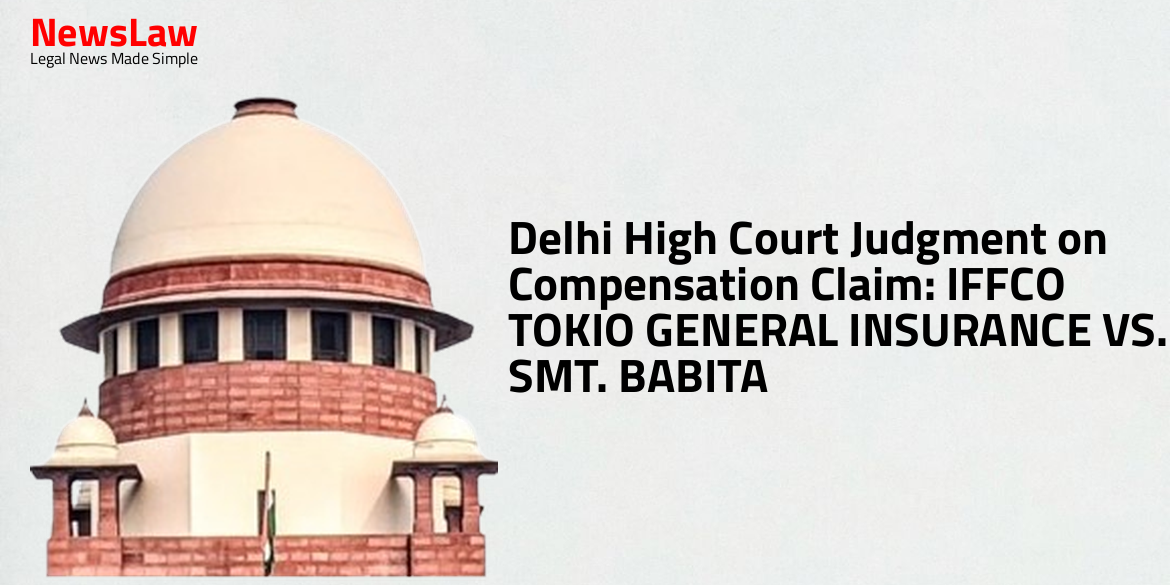In a recent judgment by the Delhi High Court, the case of Suit for Specific Performance and Permanent Injunction was examined. The plaintiff in the case presented crucial documents such as the Agreement to Sell, MOU, and Agreements dated 18.11.2010, which were found to be insufficiently stamped. The court addressed the issue of stamp duty deficiency and impounding of documents, impacting the enforceability of rights in the property. Stay informed on the legal intricacies and outcomes of this significant case.
Facts
- The documents presented by the plaintiff in the Suit for Specific Performance and Permanent Injunction, namely the Agreement to Sell dated 23.04.2009, MOU dated 08.10.2022, and Agreements dated 18.11.2010, are insufficiently stamped or unstamped as per Section 33 of the Indian Stamp Act.
- As per the Act, these documents are to be impounded and sent to the Collector of Stamp for the determination and payment of the required stamp duty by the plaintiff.
- The Suit of the plaintiff hinges on these documents, and their lack of proper stamping must be addressed through the impounding process.
Arguments
- Learned counsel for the plaintiff argues that the documents in question, like the Agreement to Sell, MOU, and the Agreement dated 18.11.2010, are not conveyance deeds but are Agreement to Sell documents.
- The plaintiff contends that the defendant Nos. 1 to 3 are obligated to execute Sale Deeds, which will require registration and payment of stamp duty as per the Indian Stamp Act.
- The plaintiff asserts that the Application by the defendants is without merit and should be dismissed.
- Section 23A of the Indian Stamp Act states that contracts for transfer of immovable property in part performance under Section 53A of the Transfer of Property Act must have 90% of the stamp duty paid as on a conveyance document, requiring compulsory registration as per Section 17 of the Registration Act.
- The respondent argues that the present Application lacks merit.
- The respondent requests for the dismissal of the Application.
Analysis
- Documents not properly stamped or insufficiently stamped are still admissible in evidence but may not be enforceable
- Failure to comply with stamp duty requirements may result in penalties as per Section 62 of the Indian Stamp Act
- Difference between admissibility and voidability of a document under Section 35 and Section 36 of the Stamp Act
- Agreements dated 18.11.2010 were modifications of earlier agreements but required proper stamping for enforceability
- Section 33 of the Indian Stamp Act mandates impounding of unstamped or insufficiently stamped instruments
- Instruments that are chargeable with stamp duty must be stamped before being produced before any public officer as per Section 33
- Agreement to Sell dated 23.04.2009 acknowledged the sale price received by the First Party from the Second Party.
- The First Party delivered peaceful possession of the property to the Second Party as per the Agreement.
- Receipt and Letter of Possession dated 23.04.2009 are crucial documents in the plaintiff’s case establishing rights in the property.
- Section 42 of the Indian Stamp Act deals with endorsement of instruments after duty payment.
- Section 35 of the Indian Stamp Act states that instruments not duly stamped are inadmissible unless the required duty is paid with penalty.
- Section 33 of the Indian Stamp Act mandates the examination and impounding of instruments not duly stamped.
- Consequences of not impounding a document under Section 35 of the Act are specified.
- Article 23A of the Indian Stamp Act pertains to conveyance in the nature of part performance under Transfer of Property Act, 1882.
- Section 53A of the Transfer of Property Act defines part-performance related to relief injunction.
- An Agreement to Sell is considered a contract for the transfer of immovable property, attracting Stamp Duty as per Schedule 1 of the Stamp Act.
- Documents admitted in evidence can still be impounded under the Stamp Act.
- The purpose of the Indian Stamp Act is to raise revenue for the Government.
- Section 35 bars acting upon a document found not duly stamped.
- The admissibility of a document is distinct from its validity or enforceability.
- Documents can be deemed invalid if not sufficiently stamped, impacting their admissibility.
- Void instruments can still be introduced in evidence.
- Procedures for rectifying stamp duty deficiencies are outlined in the Stamp Act.
- Admission of a document in evidence cannot be questioned once done, even if not duly stamped.
- Admissibility refers to the capability of being received as evidence.
- Document must be duly stamped to operate as transfer of property.
- Defendants may have admitted the document, but stamping is essential for its validity.
- Stamping must be in accordance with the Stamp Act.
Decision
- Original documents to be impounded by the Registry and sent to the Collector of Stamps for affixing deficit stamp duty and penalty.
- Documents will be returned within two months.
- Readiness and willingness to perform Agreement to be considered after relevant stage.
- Documents without requisite stamp duty are void and cannot be used for claiming any right, title, or interest.
Case Title: M/S CELEBRATION HOTELS & RESORTS(P) LTD Vs. M/S SARTAJ HOTELS APARTMENTS & VILAS PVT LTD & ORS (2024:DHC:4748)
Case Number: CS(OS)-612/2012



